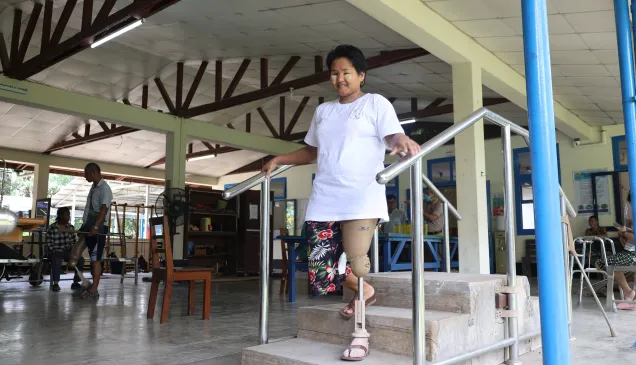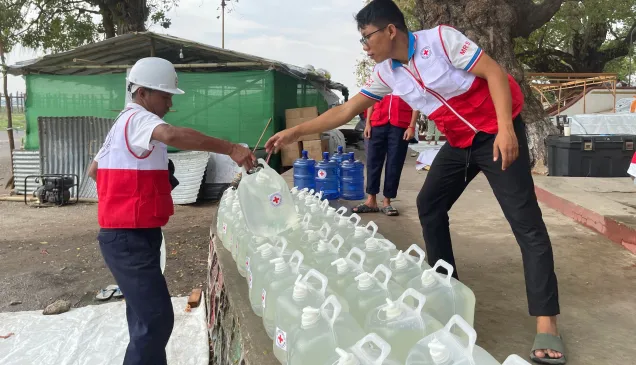Myanmar: Some days are too much to bear, says woman displaced in Kayin State
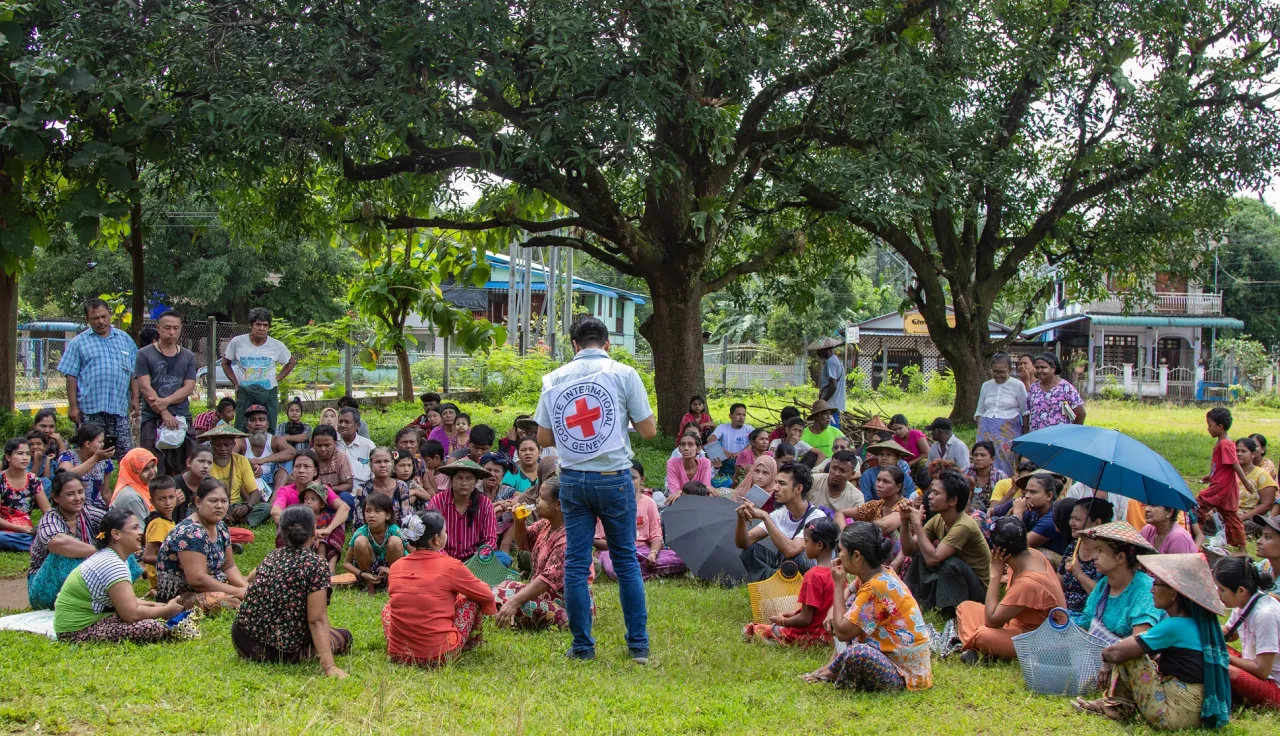
The International Committee of the Red Cross (ICRC) provided emergency assistance to over 1,500 displaced families who are currently living in Myaning Gyi Ngu, Ohn Taw, Khamamaung town and their surrounding areas in Kayin State, Myanmar.
Displaced families face the devastating consequences of armed conflict every day, including the loss of their homes and livelihoods, along with limited access to essentials like food, water, education, medicines and health care.
"Some days, I just want to disappear like smoke. It is too much of a burden for me and my family to bear," says Daw Pu*, a mother who fled from her town with her five children to escape the violence.
"We had to flee using boats, and it took us approximately eight hours to reach this place. This is a small town with few job opportunities, and despite my best efforts, I struggle to support my family," explains Daw Pu*, who now resides in Ohn Taw.
Yet, escaping from the violence is not the only challenge for these families.
In early August 2023, many displaced families and host communities were impacted by floods due to the heavy rain. "I lost all the stocked rice and had to move from our current place because the water level rose above my height," she recalls. "We stayed at other people's homes for 19 days, borrowing their clothes and eating what they would offer to us."
Many displaced families have to similarly rely on support from the host communities and local and international organizations.
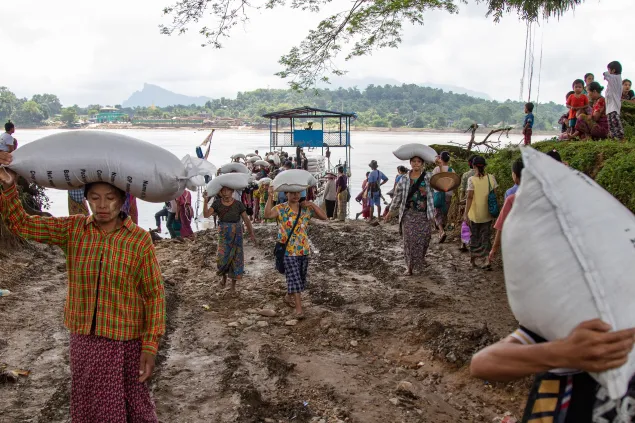
Community members help to unload emergency assistance such as rice, oil, pea, salt etc. from the boat.
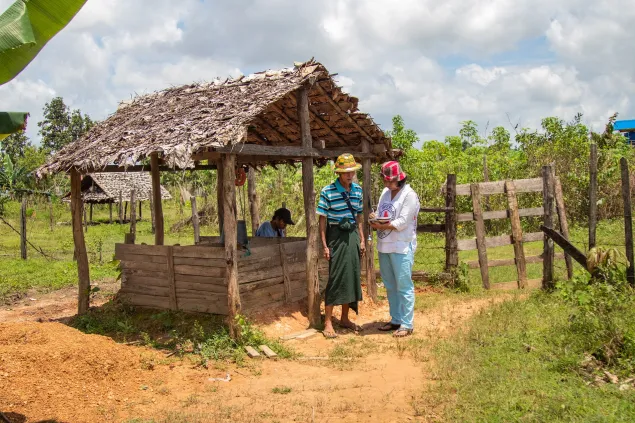
ICRC’s water and habitat engineer meets with the communities to assess communal hand-dug wells in the area.
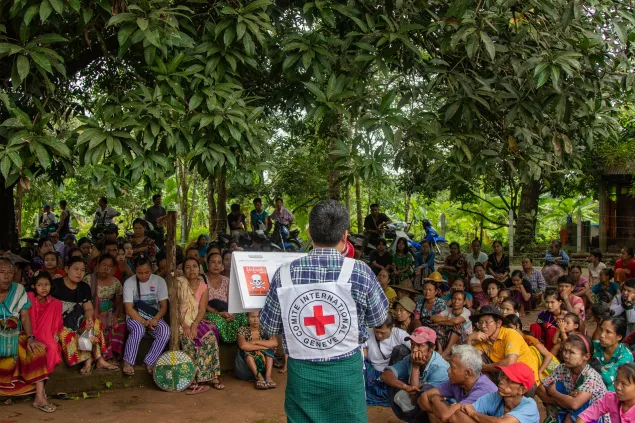
Sharing information on Risk Awareness and Safer Behaviour with the community as the threat of landmines and other explosive devices remains high.
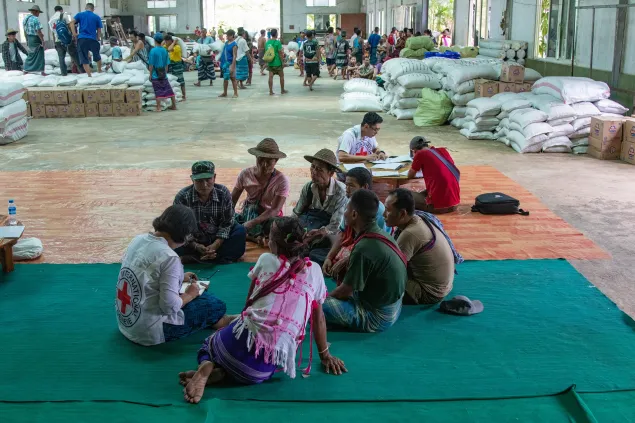
ICRC consults the communities to understand their needs and design sustainable programmes and support.
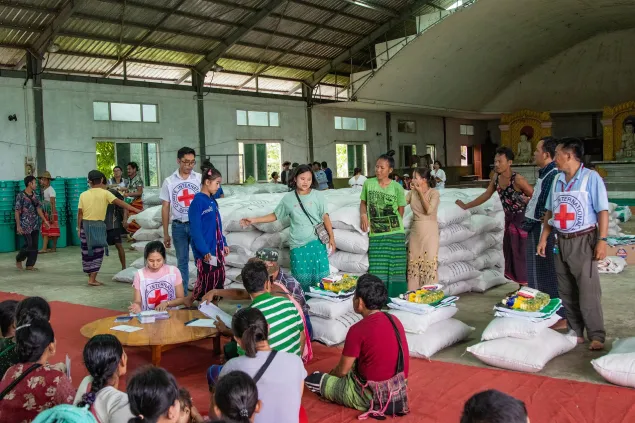
Displaced families from Myaning Gyi Ngu, Kayin State, receive food rations.
"Our emergency distribution lasted six days," says U S.See Lwin, an ICRC team leader for Kayin distribution. "Many of the displaced families have been here for nearly two years. We provided them with rice, oil, peas, salt and mosquito nets. Additionally, for those who arrived in 2023, we provided water buckets, hygiene kits, rope, tarpaulin and seed to grow vegetables," he adds.
Because of the ongoing threat of landmines and other explosive devices, our team also conducted week-long Risk Awareness and Safer Behaviour sessions. We also conducted assessments of communal hand-dug wells as the communities residing in Khamamaung area face water shortage during the dry season.
"Through this support, families will be able to cope with some of the hardships and endure harsh weather," says U S.See Lwin.
Humanitarian access remains a crucial need in Myanmar. People made vulnerable by armed conflict must be given access to essential services such as health care, education, sustainable livelihoods as well as humanitarian aid.
*Name changed to protect identity.


